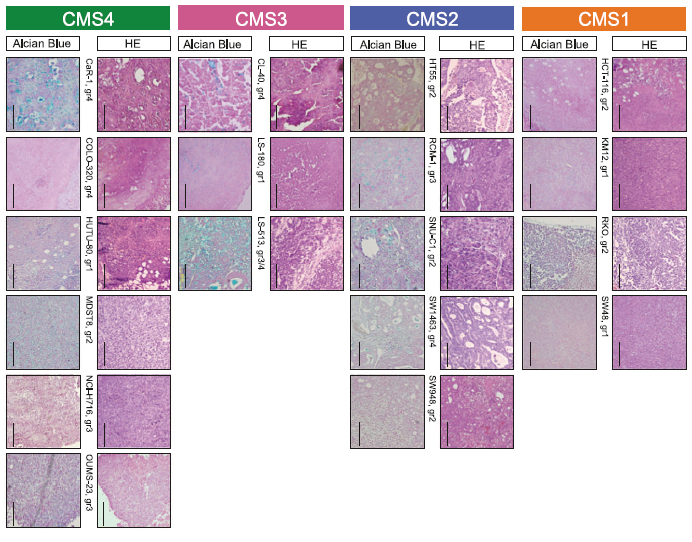May 931, 9108

Authors
Linnekamp JF†, van Hooff SR†, Prasetyanti PR, Kandimalla R, Buikhuisen JY, Fessler E, Ramesh P, Lee KAST, van Bochove GGW, de Jong JH, Cameron K, van Leersum R, Rodermond HM, Franitza M, Nürnberg P, Mangiapane LR, Wang X, Clevers H, Vermeulen L, Stassi G and Medema JP.
Cell Death and Differentiation 2018, doi:10.1038/s41418-017-0011-5
Abstract
Colorectal cancer (CRC) is a highly heterogeneous disease both from a molecular and clinical perspective. Several distinct molecular entities, such as microsatellite instability (MSI), have been defined that make up biologically distinct subgroups with their own clinical course. Recent data indicated that CRC can be best segregated into four groups called consensus molecular subtypes (CMS1-4), each of which has a unique biology and gene expression pattern.
In order to develop improved, subtype-specific therapies and to gain insight into the molecular wiring and origin of these subtypes, reliable models are needed. This study was designed to determine the heterogeneity and identify the presence of CMSs in a large panel of CRC cell lines, primary cultures and patient-derived xenografts (PDX). We provide a repository encompassing this heterogeneity and moreover describe that a large part of the models can be robustly assigned to one of the four CMSs, independent of the stromal contribution. We subsequently validate our CMS stratification by functional analysis which for instance shows mesenchymal enrichment in CMS4 and metabolic dysregulation in CMS3.
Finally, we observe a clear difference in sensitivity to chemotherapy-induced apoptosis, specifically between CMS2 and CMS4. This relates to the in vivo efficacy of chemotherapy, which delays outgrowth of CMS2, but not CMS4 xenografts. Combined our data indicate that molecular subtypes are faithfully modelled in CRC cell cultures and PDXs, representing tumour cell intrinsic and stable features. This repository provides researchers with a platform to study CRC using the existing heterogeneity.

